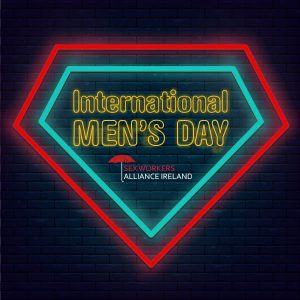 Men ignored by sex work law because it does not suit the ‘helpless victim’ propaganda, says university expert
Men ignored by sex work law because it does not suit the ‘helpless victim’ propaganda, says university expert
Availability of PrEP through HSE from this month a major step in addressing HIV, speaker from DCU explains
Men were excluded in the formulation of current laws criminalising sex work, because to include them would expose the fallacy that this work involves only helpless victims, Dr. Paul Ryan, Asst Professor in the Department of Sociology, Maynooth University, stated at a meeting in Dublin today (Sunday Nov. 17th).
Speaking at the second in a series of ‘Soundhouse Sundays’, organised by Kate McGrew (aka Lady Grew) of Sex Workers Alliance Ireland (SWAI), on themes related to sex work and the law, Paul Ryan said that “the proponents of this law needed victims and perpetrators to argue for strict legal solutions. It difficult to differentiate these categories in male sex work, so it was conveniently and deliberately ignored.
“Organisations advocating criminalisation systematically distort the facts to portray all sex workers as hopeless, hapless and helpless. This is a totally false portrayal of the reality of sex workers. It is very obviously so in the case of male sex work,” Paul Ryan said.
“Many men, women and trans sex workers, especially migrants to Ireland, become involved very deliberately for economic reasons to, for instance, escape the housing crisis and the grip of slum landlords.
“Or, given the approaching season, to raise funds for loved ones here at Christmastime or support their impoverished families in their home countries.”
He said that the ‘criminalisation of sex work’ law is, in fact, all about stigma and little about addressing real issues real issues like poverty and disadvantage.
“Meanwhile, out in the real world, the industry is becoming more mainstream in a variety of ways. University students, for example, are increasingly entrants to the sex industry.
“Conventional sex work websites are being displaced by, for instance, gay dating apps like Grindr where men are propositioned by men. These men don’t see themselves in the conventional sense as sex workers, and, of course are conveniently not regarded as such by the pro-criminalisation lobby. They certainly do not seek ‘rescue’,” Paul Ryan said.
Robert Lawlor, Dublin City University and Co-Founder of Access to Medicines Ireland, said that the emergence of new treatments, especially Pre Exposure Prophylaxis (PrEP), can help to end both the stigma and fear around male sex work and the broader issue of HIV in the community.
PrEP is a medication taken by HIV-negative people to reduce the chance of getting HIV from sex or sharing equipment to inject or use drugs. From 4th November 2019, it is available free of charge in Ireland to those who meet the clinical eligibility criteria.
Robert Lawlor said that “95% of all people on this HIV medication have HIV levels that are undetectable and therefore medically untransmissable, also known as U=U.
“There are, however, still an estimated 700 people living with HIV in Ireland who do not know their status. By promoting U=U, we are promoting sexual liberation not just for people living with HIV but for all those who do not have the virus.
“For people who stay on their medication it is impossible for them to transmit the virus through sexual contact.
“This message creates a paradigm shift in how the public should think of those living with HIV. We encourage everyone who may have even a slight fear of having contracted HIV to know their status and, if necessary, get on HIV treatment. This, in turn, will see the rate of new HIV diagnoses in Ireland plummet.
“For sex workers this is empowering. People living with HIV can become the safest people to have sex with in regards to HIV, Robert Lawlor said.
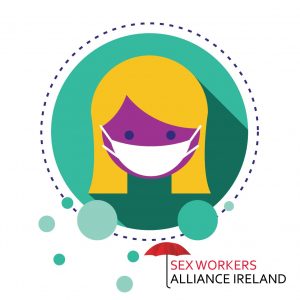 Earlier this week we sent the following email to the caretaker Taoiseach Leo Varadkar and caretaker Minister for Health Simon Harris as well as other state departments. Sex workers who are experiencing financial difficulties, much like other precarious workers during these times, are being affected by Covid-19. We must be included in any plans for vulnerable populations and we cannot remain invisible to the state during this time.
Earlier this week we sent the following email to the caretaker Taoiseach Leo Varadkar and caretaker Minister for Health Simon Harris as well as other state departments. Sex workers who are experiencing financial difficulties, much like other precarious workers during these times, are being affected by Covid-19. We must be included in any plans for vulnerable populations and we cannot remain invisible to the state during this time.
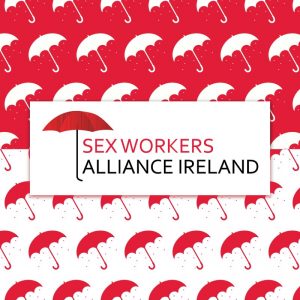 We want to work with Gardaí so that crimes like these can come to justice
We want to work with Gardaí so that crimes like these can come to justice

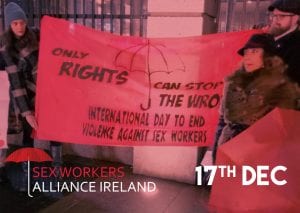
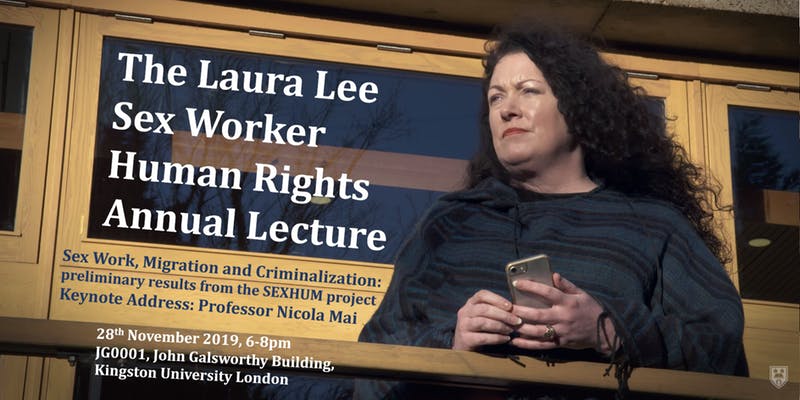
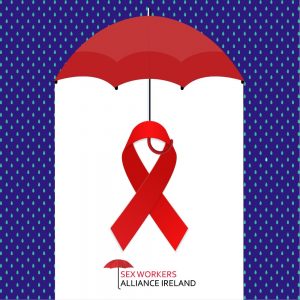
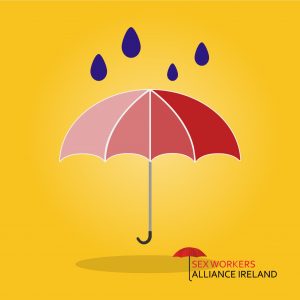 Kate McGrew, current sex worker and director of the Sex Workers Alliance Ireland (SWAI) said today “The same Gardaí department who arrest us for working together for safety is the one who we are expected to report to if a crime is committed against us. Is it any wonder that sex worker trust in Gardaí is at an all-time low?
Kate McGrew, current sex worker and director of the Sex Workers Alliance Ireland (SWAI) said today “The same Gardaí department who arrest us for working together for safety is the one who we are expected to report to if a crime is committed against us. Is it any wonder that sex worker trust in Gardaí is at an all-time low? 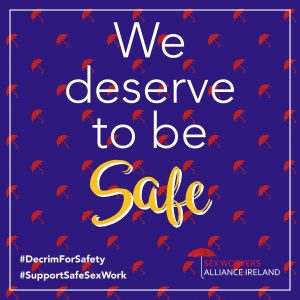
 Men ignored by sex work law because it does not suit the ‘helpless victim’ propaganda, says university expert
Men ignored by sex work law because it does not suit the ‘helpless victim’ propaganda, says university expert